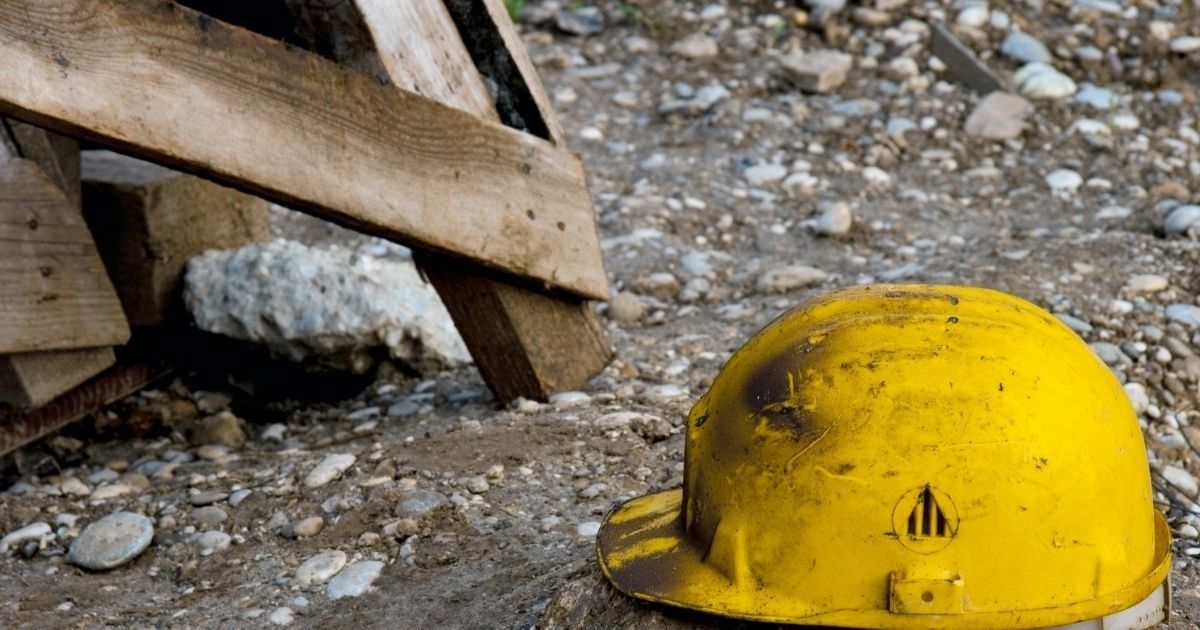The Occupational Safety and Health Administration (OSHA) calls excavation and trenching among the most hazardous construction operations. They define excavation as any human-made cut, cavity, trench, or depression formed by earth removal.
Excavation workers are an essential part of almost any construction project. They help build and grade roads; dig earth for ponds and sewers; excavate for the installation of sewer, gas, and water lines and pipes; build earthen dams; and create drainage systems in farming land. Excavators are also needed in many landscaping, demolition, and home remodeling projects.
Excavation workers work with heavy equipment such as backhoes, skid steers, bulldozers, compactors, and trenchers. Excavating companies also generally use dump trucks to haul debris.
Unfortunately, the nature of excavation work and the equipment used can lead to dangerous working conditions and accidents. An experienced workers’ compensation lawyer will help pursue compensation for workers injured while excavating or trenching.
What are Excavation Hazards?
The sheer nature of excavating work lends itself to potential hazards leading to injury. Following are common risk factors:
Equipment. Heavy equipment takes solid training and experience to use. Even with proper training, the equipment can cause accidents to the operator or other workers nearby. For example, obstructed views can cause an operator to move the equipment into dangerous territory. The loading or unloading of materials can cause debris to fly or fall, hurting those standing close to the machinery.
Toxic substances/depleted oxygen. The farther down earth is dug, the higher the chance of noxious chemicals and gases being released. Also, trenched areas can deplete oxygen levels, making it extremely hazardous for anyone working without respiratory protection. A professional must perform atmospheric testing for trenches deeper than four feet.
Falling and shifting loads. OSHA requires signage and barriers to prevent workers and equipment from falling into trenches or causing material loads to fall or turn in transit. Falling materials and equipment can hurt the equipment operator and those working nearby.
Cave-ins and collapses. According to OSHA, trench and other earth collapses kill two excavation workers a month. The excavating company should hire only professionally trained and certified engineers to design and implement supports and other safety measures after analyzing the soil in an excavation area.
Utility line and infrastructure damages. No one knows what lies beneath the earth. Excavation workers have been harmed or killed by natural gas leaking from damaged pipes or by electrocution from power lines. Excavators must call utility companies before digging, no matter the size of the project. Overhead lines can also cause a potential hazard, so they may need to be moved by the utility company temporarily. If not, excavators must use extreme caution when working around them.
Trench flooding. Water infiltration, whether from a damaged utility line or other cause, is a cause for concern in any excavation project. OSHA reports show that in 2017 to 2018, at least nine excavation workers were killed as a result of trench floods that caused the material to fall.
Failure to compensate for changing conditions. The composition and stability of earth and soil can change throughout the project. Rain, moisture, and other weather conditions can create new hazards for workers. The soil must be tested daily and after every weather event so that adjustments to equipment or plans can be made.
Faulty planning. Every excavation project needs a solid groundwork plan that includes recommendations for supports and shields to safeguard from collapses and other hazards. In addition, equipment needed for the project should be on-site, inspected, and ready to go. Finally, a project plan should recommend the most experienced and trained workers to operate equipment, supervise, and ensure safety.
Collapse of nearby structures. Sometimes excavation in one area will affect an existing structure’s stability, significantly affecting worker safety and the secure operation of equipment.
Disregard for protective equipment. Workers must wear protective headgear and other safety equipment at all times while working on an excavation or trenching project. These include hard hats, reflective vests, hearing protection, hand covers, and other protective wear. Improper or nonexistent protection can lead to serious injury or death.
A workers’ compensation lawyer can help anyone who has been injured on the job determine who was liable in an excavation accident.
How Should Excavators Ensure Safety?
First, any excavation contractor must know and understand OSHA requirements for worker safety. Unfortunately, not every excavation contractor follows safety and jobsite planning protocols. Accidents do happen, particularly in the trenching and excavation business, where conditions can be dangerous.
Excavation workers should be aware of how their employer operates and employs safety precautions. Excavation companies must do the following:
- Adequately insure workers.
- Follow OSHA guidelines and industry-accepted protocols for both operation and safety.
- Hire professional engineers and other certified pros to plan the project, particularly for stability and safety.
- Use recommended support systems to avoid trench collapse, including sloping, shoring, and other recommended protocols.
- Provide adequate signage and install barriers to prevent falls into the excavated earth by equipment operators, workers, and even the general public that wander onto a job site.
- Use flaggers and spotters to help guide equipment operators and workers.
- Keep materials and removed dirt far from trenches to ensure they do not fall in and onto workers.
- Require and provide protective safety equipment to all workers.
- Inspect the worksite at the start and end of each workday to account for changing soil conditions.
- Change plans or equipment as needed to account for weather conditions or other issues that will affect soil and stability.
- Call utility companies before digging to understand the location of pipes and underground lines.
- Ensure that needed equipment is on site and in good operating condition.
- Keep a pump on site to help mitigate flooding.
- Train all employees in operations and safety; use experienced workers for heavy equipment operations particularly.
- Regularly have the work and excavated site inspected throughout the project by a competent person capable of identifying and predicting hazards and authorized to take measures to correct, eliminate, or control adverse conditions.
- Provide safe access and egress to the site, including ladders, ramps, steps, and other methods for workers to get in and out of the worksite without harm.
- Complete atmosphere tests regularly to ensure adequate oxygen and the absence of toxic chemicals.
What Should I Do if I am Injured in an Excavation Accident?
The first step is to report the injury to the employer. Then, the injured worker should seek medical care, even if injuries do not seem severe. It takes some injuries days to appear, or even months and years, such as certain back injuries.
It is important to keep records, receipts, and summaries of doctor visits, including prescriptions, specialist visits, medical equipment needed, rehabilitation required, and anything else related to the injury.
Finally, the injured worker should contact a workers’ compensation lawyer as soon as possible after the accident. Although workers’ compensation will cover some medical bills for on-the-job injuries, the injured worker, or the family of a worker who is killed, may be entitled to more than what workers’ compensation or the employer provides.
There are many rules and guidelines required of the construction and excavation industries. A lawyer can help an injured worker or their family understand if the employer, third party, or even equipment manufacturer may be at fault.
Cherry Hill Workers’ Compensation Lawyers at Pietras Saracino Smith & Meeks, LLP, Advocate for Victims of Excavation Injuries
Those who work in the excavation and trenching occupations are heroes. They are needed for many important projects, from construction to farming, and they do their jobs despite the inherent danger. The Cherry Hill workers’ compensation lawyers at Pietras Saracino Smith & Meeks, LLP, want to ensure that any person injured in an on-the-job accident receives all the compensation for which they are entitled under the law. Excavation and trenching accidents often happen under circumstances that merit a full investigation. That is what we do best. Call us today at 856-761-3773 or contact us online to schedule a free consultation. Located in Cherry Hill, New Jersey, we serve clients in Camden, Cinnaminson, Delran, Maple Shade, Pennsauken, and throughout South Jersey.













